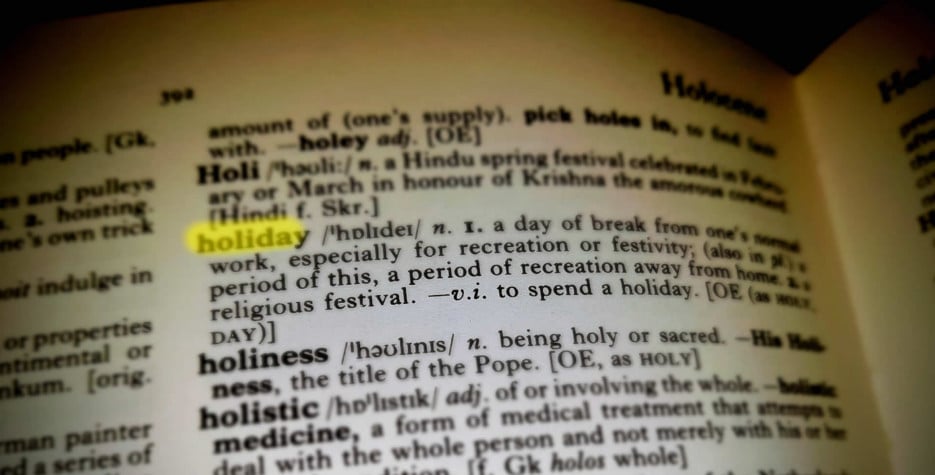
Explanation of the different types of holidays
It can be confusing to understand when a holiday really is a holiday. This page explains all the different types of holidays that we feature on www.officeholidays.com.
Public Holiday
There is no uniform definition of a public holiday around the world. On this site we use it to indicate a day when public and private sector workers have a holiday on a day which would otherwise be a working day.
A public holiday can be set in different ways. It can be fixed, where the holiday occurs on the same date every year irrespective of the weekday it falls on. In some countries, if the holiday falls on a weekend, or clashes with another holiday, then the day after may be taken as a holiday in lieu of the holiday. It can be moveable, where the date varies from year to year depending on other factors such as the cycle of the moon.
A holiday may be 'Mondayised', where it always falls on a Monday, such as bank Holidays in the United Kingdom. In Colombia, almost all religious holidays are celebrated on the following Monday.
National Day
Most countries have a designated national day. This holiday usually celebrates something notable in the creation of that country, such as its independence or signing of the constitution. Some countries may have more than one national day, such as India, which has three - Republic day. Independence day and Gandhi Jayanti.
Denmark and the United Kingdom are two countries who don't have a National Day.
National Days
Some countries want to mark notable events or dates, but don't want to create too many holidays. In this case, they may have national days, which are official days to mark these events, but are not holidays. Examples of such countries are USA and Hungary.
Bank Holidays
This can mean two things depending on which country you are in. For countries that were once part of the British Empire, it generally means a public holiday. But beware, in some countries. a bank holiday can mean just that - a holiday just for banks. For instance in Scotland, the Bank Holiday on last Monday in August is not a public holiday as it in the rest of the UK, but it is a day when banks are closed. Read more about Bank Holidays
Gazetted Holidays
The meaning of the term “gazetted holiday” is basically a holiday that is said by the government to be mandatory. So, a gazetted holiday means that the holiday must be observed by schools, banks, and typically many employers observe the holiday as well. The term 'gazetted holiday' is typically only used in countries that were formerly colonized by the British – like India, Pakistan, Singapore, and Australia.
Ponto faculativo
Unique to Brazil, this type of holiday is optional. It is up to an employer whether they allow employees to take this day. In practice, the holidays are widely observed by the public sector and large companies.
Restricted Holidays
These are holidays from which individuals may choose a limited number, though government offices and businesses don't close. In India, this system allows flexibility to accommodating India's religious and cultural pluralism.
Bridge Holidays
If a holiday falls on a Thursday or Friday or is close to another holiday, then a bridge holiday may be declared. This will then create a 'bridge' to the weekend or the next holiday. In some countries, this bridge holiday is compensated by making a Saturday from a different weekend a working day.
In Mauritius, when a holiday falls on a Tuesday or Thursday, many will take the day in between it and the weekend off, which is called "faire le pont" (making a bridge).
In Sweden, it is known as "squeeze day", whereas in Chile, they call it "taking the sandwich". In France, many businesses allow their employees to take Friday as a "bridge" day.
Federal Holidays
In the United States there are no national holidays. Instead, a federal holiday is an authorised holiday which has been recognised by the US government. Every year on a US federal holiday, non-essential federal government offices are closed, and every federal employee is paid for the holiday. Private-sector employees required to work on a legal holiday may receive holiday pay in addition to their ordinary wages.
Federal holidays are designated by the United States Congress in Title V of the United States Code (5 U.S.C. § 6103). Congress has authority to create holidays only for federal institutions and employees, and for the District of Columbia.
Statutory Holidays
In some countries this term may be used to indicate a mandatory holiday. In Canada, public holidays are called statutory holidays, sometimes referred to as 'stats'.

